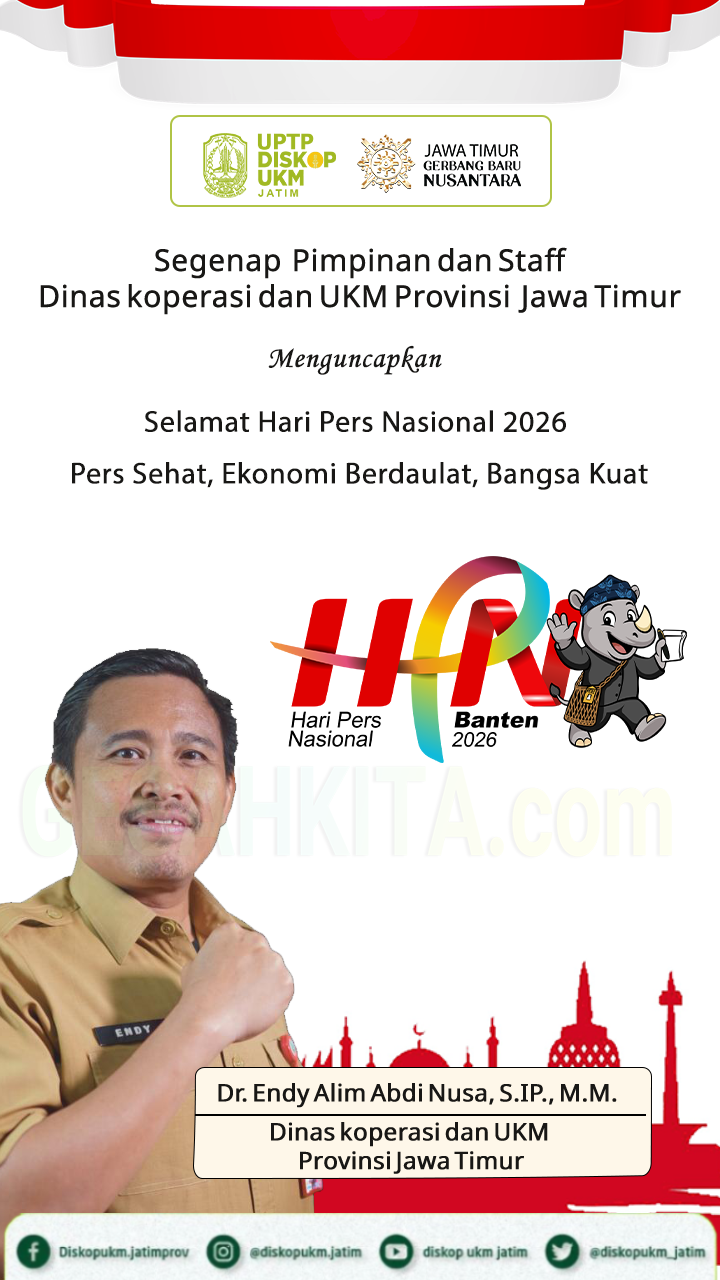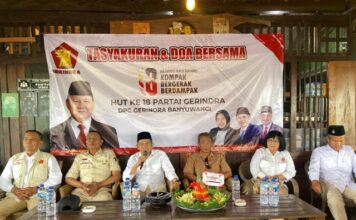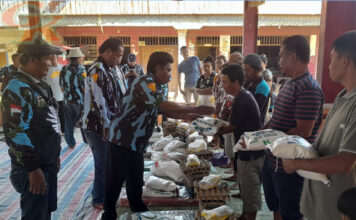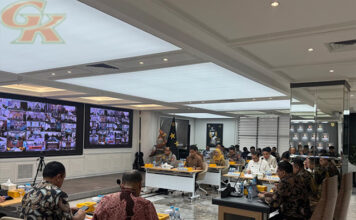JAKARTA, GESAHKITA COM–Indonesian Grammar for some expat is none of that difficult because the rules is like other world Languages. This time we will discuss Indonesian grammar along with examples of Indonesian vocabulary and their examples for your exercises. You can check our previous article in here for your other references.
Indonesian Grammar Structures
In the Indonesian vocabulary, we also find parts of speech same as in the English language. This topic is designed for you that consist of the 8 major parts of speech in Indonesian, with the definitions and examples. They are verb, noun, pronoun, adverb, adjective, conjunction, preposition, and interjection.
You will learn about how to use all eight-word groups below and make you understand how to use them properly in a sentence. Everything else that has to do with grammar builds on this information, so soak it all in! Thus, here are how to learn Indonesian Grammar
Kata Kerja (Verbs)
The sense of verbs is all words which describe the deeds or activities. Simply put, this verb can be understood as the words containing the meaning to perform an action. The verbs can be used to express an act, the act, processing, or work performed by the subject against the object. The verbs can be grouped based on the forms and the types.
- The Verbs Based on Forms
The basic verbs are verbs that is not yet given a prefix and it is the foundation of a larger word. This type of words cannot make a sentence without a subject and an object but we can make it as an imperative sentence. It’s important to learn verbs to learn Indonesian grammar.
The Basic Forms of Indonesian Verbs in Sentence = Subject+Verb+Object
Here are the Indonesian Vocabulary Examples and Meaning
| Indonesian | English | Indonesian Sentence | English Sentence |
| Lihat | See | Saya lihat mereka di sana | I see them there |
| Bicara | Talk | Saya bicara dengan Ibu | I talk to mom |
| Lari | Run | Dia lari ke lapangan | She runs to field |
| Pukul | Punch | Dia pukul saya | He punches me |
| Tiup | Blow | Saya tiup lilin | I blow the candle |
| Dengar | Hear | Saya dengar lagu itu | I hear that song |
| Tendang | Kick | Dia tendang bola | He kicks the ball |
| Pegang | Touch | Dia pegang tanganku | She touches my hand |
| Masak | Cook | Saya masak nasi | I cook rice |
| Buat | Make | Saya buat spageti | I make spaghetti |
| Kirim | Send | Dia kirim surat | He sends a letter |
| Ambil | Take | Dia ambil buku | She takes the book |
| Bakar | Burn | Saya bakar sampah | I burn trashes |
| Bunuh | Kill | Saya bunuh nyamuk | I kill mosquitos |
| Bediri | Stand | Dia berdiri di sampingku | She stands next to me |
| Dapat | Can | Dia dapat berenang | He can swim |
| Datang | Come | Saya datang terlambat | I come late |
| Minum | Drink | Saya minum jus orange | I drink orange juice |
| Tidur | Sleep | Dia tidur di lantai | She sleeps on the floor |
| Tolong | Help | Dia tolong adikknya | He helps his brother |
| Dorong | Push | Saya mendorong meja | I push the table |
| Tembak | Shoot | Saya tembak kaleng | I shoot the can. |
| Hancur | Destroy | Dia hancurkan bukunya | She destroys her book |
| Potong | Cut | Dia memotong rumput | He cut the grass |
| Undang | Invite | Saya undang teman saya | I invite my friends |
Thus, that’s the simple example of Indonesian Verbs in sentences. To get to know it better, please open your dictionary and kindly practice to write sentences in Indonesian verbs.
As imperative sentences with verbs
Here are the Indonesian Vocabulary examples and meaning in imperative sentence:
| Indonesian | English | Indonesian Sentence | English Sentence |
| Lihat | Look | Jangan lihat! | Don’t look! |
| Sentuh | Touch | Jangan sentuh! | Don’t touch! |
| Lari | Run | Jangan lari! | Don’t run! |
| Tolong | Help | Tolong saya! | Help me! |
| Tembak | Shoot | Jangan tembak! | Don’t shoot! |
Meanwhile, learning Indonesia verbs is basically the same in English sentence. Just you need to know the right vocabulary and its meaning in sentence.
- Affix nouns
The affix nouns are the verbs that have been added with the prefix. The suffixes can be either a prefix, a suffix, infix, and prefix-suffix. This, the theory to learn how you use Indonesian grammar in sentences.
For examples of Indonesian affix noun:
Prefix (me- and ber-)
The Forms of Prefix (me- and ber-): Prefix + Basic Word
| Indonesian | English | Indonesian Sentence | English Sentence |
| Prefix + Basic Word | |||
| Melihat (me- + lihat) | Looking at | Saya melihat kamu | I am looking at you |
| Berbicara (ber- + bicara) | Talking | Dia berbicara keras | She is talking loudly |
| Memukul (me- + pukul) | Punching | Saya memukul tembok | I am punching wall |
| Berlari (ber- + lari) | Running | Dia Berlari Kencang | He is running fast |
| Memasak (me- + masak) | Cooking | Saya memasak mie | I am cooking noodles |
As well, this Forms of Prefix (me- and ber-) is basically the Indonesian version simple present continuous tense (S + Tobe (is, am, are) + Ving + O/C)
Prefix-sufix (me- + -kan, memper- + -i, and me- + -i)
Indeed, Prefix-sufix is the way basic words of verbs, added by Prefix-sufix (me- + -kan, memper- + -i, and me- + -i) in the middle of the basic word. Meanwhile, the basic word will have just the same meaning, but in different use. Not all basic words can be added with this Prefix-sufix (me- + -kan, memper- + -i, and me- + -i). Also, there are ruls how you can add the prefix-sufix.
| Indonesian | English | Indonesian Sentence | English Sentence |
| Basic Word: Tambah | Add | Saya menambahkanbumbu | I add seasoning |
| Menambahkan | |||
| (me- + tambah + -kan) | |||
| Basic Word: Soal | Matter | Dia mempersoalkanmasalah itu | He discuss that matter |
| Mempersoalkan | Discuss | ||
| (memper- + soal + -kan) | – | ||
| Basic Word: Lampau | Over | Dia melampaui batas | He exceeded the limit |
| Melampaui | Exceed | ||
| (me- + lampau + -i) |
Well, this may be hard for the first learner. Yet, you can just use basic verb words in sentences. It won’t really change the meaning.
- The verbs based on types
The next is the types of basic verbs, divided into two which is intransitive and transitive verbs.
Intransitive Verbs
The Intransitive words are a type of verbs that do not require an object. Because of the absence of objects, every sentence with this type of words cannot become a passive sentence.
The Forms of Indonesian Intransitive Verbs = Subject + Intransitive Verbs
For examples of Indonesian intransitive verbs
| Indonesian | English | Indonesian Sentence | English Sentence |
| Menangis | Crying | Dia menangis | He is crying |
| Tersenyum | Smiling | Dia tersenyum | She is smiling |
| Berdiri | Standing | Saya berdiri | I am standing |
| Terdiam | Speechless | Saya terdiam | I am speechless |
| Tidur | Sleeping | Dia tidur | She is sleeping |
| Mandi | Bathing | Dia mandi | He is bathing |
| Menguap | Yawning | Dia menguap | She is yawning |
| Berdoa | Praying | Saya berdoa | I am praying |
| Berlomba | Racing | Dia berlomba | He is racing |
| Berpakaian | Dressing | Saya berpakaian | I am dressing |
Well, you know how to use intransitive verbs in English, it’s little bit different with Indonesian intransitive verbs.
The Transitive Verbs
The transitive verbs is type of verbs that always require an object.
The Forms of Indonesian Transitive Verbs = Subject + Intransitive Verbs + Object
For examples of Indonesian transitive verbs
| Indonesian | English | Indonesian Sentence | English Sentence | Object |
| Membeli | Buying | Saya membeli baju | I am buying clothes | Baju/Clothes |
| Memanggil | Calling | Saya memanggil kamu | I am calling you | Kamu/You |
| Memeluk | Hugging | Dia memeluk bantal | She is hugging a pillow | Bantal/Pillow |
| Menanam | Planting | Dia menanam bunga | He is planting flowers | Bunga/Flowers |
| Memperbaiki | Fixing | Saya memperbaiki meja | I am fixing a table | Meja/Table |
| Menasehati | Advising | Saya menasehati adik | I am advising brother | Adik/Brother |
| Membuat | Making | Dia membuat film | He is making a movie | Film/Movie |
| Memotong | Cutting | Dia memotong daging | She is cutting a meat | Daging/Meat |
| Menyiram | Watering | Saya menyiram tanaman | I am watering plants | Tanaman/Plants |
| Memberikan | Giving | Saya memberikan uang | I am giving money | Uang/Money |
| Menerima | Accepting | Dia menerima hadiah | She is accepting a prize | Hadiah/Prize |
Indeed, Indonesia intransitive verbs included object in the sentence. So, make it a complete sentence with subject, verb, and object.
Kata Benda (Nouns)
The sense of nouns is a type of words that describe something kind of objects, real objects/visible or invisible (abstracts), such as a person’s name, places, plants or animals, activities, behavior, and others. It has a function as a subject and an object in activities. It’s important to learn nouns to learn Indonesian grammar.
The Basic Nouns
The Basic noun is nouns that indicate the existence of an object, whether it is concrete or abstract objects. Here are some examples of their formation.
- The Concrete objects
Just like in English, Indonesian have lists of concrete nouns, here are the example of concrete nouns in Indonesian language:
| Indonesian | English |
| Pakaian | Clothes |
| Kertas | Paper |
| Tas | Bag |
| Rumah | House |
| Mobil | Car |
| Botol | Bottle |
| Gelas | Glass |
| Buku | Book |
| Kursi | Chair |
| Topi | Hat |
Further, there are thousand Indonesian noun as concrete nouns or objects that we will discuss in the next study.
- The Abstract Objects
Abstract noun is the amount of noun that you can’t count. Here are the example of Indonesian abstract noun:
| Indonesian | English |
| Udara | Air |
| Bencana | Disaster |
| Ide | Ideas |
| Perdamaian | Peace |
| Kejujuran | Honesty |
| Keinginan | Desire |
| Kesempatan | Opportunity |
| Kegagalan | Failure |
| Kaya | Rich |
| Kesenian | Art |
Thus, there are thousand Indonesian noun as abstract nouns or objects that we will discuss in the next study.
- The Derivative Nouns
The Derivative nouns are verbs that get the addition of a prefix, suffix, infix or prefix-suffix, known as affixation. Here are some examples of the process.
Prefix (Pe-) + Verb
Prefix (Pe-) changes verb to be noun. As well as suffix + er in English.
The Forms of Prefix (Pe-) + Verb = Noun
| Indonesian | English | Indonesian Sentence | English Sentence |
| Basic Word: Lukis | Paint | Dia seorang pelukis | He is a painter |
| Pelukis | Painter |
There are more example of Prefix (Pe-) in Indonesian sentences.
Verb + Suffix (-an)
Suffix (-an) changes verbs to be noun in Indonesian rule.
The Forms of Suffix (-an): Verbs + Suffix = Noun
| Indonesian | English | Indonesian Sentence | English Sentence |
| Basic Word + Suffix | |||
| Pukulan (pukul + -an) | Punch | Pukulan dia keras | His punch is so hard |
| Minuman (minum + -an) | Drink | Dia suka minuman itu | He likes the drink |
| Makanan (makan + -an) | Food | Saya suka makanan | I like food |
| Sayuran (sayur + -an) | Vegetables | Saya makan sayuran | I eat vegetables |
| Undangan (undang + -an) | Invitation | Dia kirim undangan | He sent invitation |
Indeed, don’t be confused by the changes of the word class. Slow but sure we will teach how to learn Indonesian correctly.
Infix (-em-, -in-, -ah-, -el-, and –er-)
Where you add infix in the middle of basic word, that basically have new meaning, but still in the same noun word class.
| Indonesian | English | Indonesian Sentence | English Sentence |
| Basic Word: Getar | Shake | Badannya gemetar | Her body is shaking |
| Gemetar (Ge + -em-+ etar) | Shaking | ||
| Basic Word: Kerja | Work | Kinerja dia bagus | His performance is good |
| Kinerja (K + -in- + erja) | Performance | ||
| Basic Word: Dulu | Past | Dahulu, dia adalah kekasihnya | Fomerly, she was his girlfriend |
| Dahulu (D + -ah- + ulu) | Formerly | ||
| Basic Word: Gembung | Bloated | Saya membuat gelembung | I make bubbles |
| Gelembung (Ge + -el- + embung) | Bubbles | ||
| Basic Word: Suling | Flute | Saya meniup seruling | I blew the flute |
| Seruling (Se + -er + uling) |
There are more examples Infix (-em-, -in-, -ah-, -el-, and –er-). Basically, this point uses for Indonesian formal sentences.
Prefix (pe-) + noun + Suffix (-an)
This is where a basic word added by both prefix and suffix, and it will create new meaning.
| Indonesian | English | Indonesian Sentence | English Sentence |
| Basic Word: Rumah | House | Perumahan mereka sangat indah | Their housing is very beautiful |
| Perumahan | Housing |
Thus, there are more examples prefix (pe-) + noun + Suffix (-an)
The Indonesian Noun Characteristics
The characteristics of nouns based on understanding. It has three characteristics are as follows:
- In a structure of a sentence, nouns can be used as a subject or an object.
For Example:
A noun as an object
Noun that uses as object in the sentence.
| Indonesian | English | Indonesian Sentence | English Sentence |
| Koran | Newspaper | Ayah membaca koran | Dad is reading newspaper |
Meanwhile, it’s a basic use of noun like we know in English. Where noun as object uses to complete the sentence so it’s clear what the sentence means.
A noun as a subject
Noun (Kata Benda) that used as subject in sentence.
| Indonesian | English | Indonesian Sentence | English Sentence |
| Adik | Brother | Adik memeluk boneka | My sister hugs her doll |
Thus, there are many example of noun as subject such as Mother (Ibu), Father (Ayah), Friend (Teman), and many more.
- Nouns can be followed or preceded by the denial words, not (bukan) or without (tanpa)
For example:
A noun with a denial word “Not (Bukan)”
This is for negative sentence when you use “Not” in English.
| Indonesian Sentence | English Sentence |
| Saya yang meminta bantuan, bukan dia | I am asking for help, not him |
Well, you may practice it more using a denial word which is Not (Bukan).
A noun with a denial word “Without (Tanpa)”
This form of positive sentence but have negative meaning using word “without (tanpa)”
| Indonesian Sentence | English Sentence |
| Saya dapat mengerjakaan ini tanpa bantuan | I can do this without assistance |
Well, you may practice it more using a denial word which is “without (tanpa)”
- Nouns can make a linguistic meaning when it is followed by adjectives
The meaning of linguistic is meaning which doesn’t have a predicate in its structure.
For example:
| Kata Benda + Sifat | Adjective + Noun | Indonesian Sentence | English Sentence |
| Tas Putih | White Bag | Tas putih adalah milik saya | The white bag is mine |
Based on the process of its formation, nouns are divided into two types, namely basic nouns and derivative nouns.
Here is the list of examples that use nouns for your vocabularies. Can you guess which one of the nouns as subject and object? Here is the explanation of how to learn Indonesian Vocabulary.
| Indonesian Sentence | Subject | Object |
| Daisy adalah anak pertama | Daisy | Anak pertama (first child) |
| Dia memiliki banyak pensil | Dia (He/she) | Pensil (pencil) |
| Ibu membeli sayuran | Ibu (Mother) | Sayuran (Vegetable) |
| Ayah mendegarkan musik | Ayah (Father) | Musik (Music) |
| Saya menyukai kucing | Saya (I) | Kucing (Cat) |
| Adik membeli buku | Adik (Brother) | Buku (Book) |
| Dia membeli permen | Dia (He/she) | Permen (Candy) |
| Saya mendapatkan ide | Saya (I) | Ide (Idea) |
| Dia menyesali kegagalannya | Dia (He/she) | Kegagalan (Failure) |
| Dia adalah seorang dokter | Dia (He/she) | Dokter (Docter) |
Meanwhile, Indonesian noun is basically the same like English noun, just Indonesian have some rule points that you need to understand.
Kata Ganti (Pronouns)
In accordance with the Indonesian dictionary, kata ganti (pronouns) are type of words that have a function as a substitute word for noun or noun phrase. Meanwhile, in the common language, pronouns are type of words which is used to replace another noun, it can be people or things. They are usually used with the intention to refine the language used as well as to make a sentence more effective. It doesn’t make a sentence seem to be wordy and repeatedly.
The Indonesian Pronoun Characteristics
The characteristics of pronouns based on its use and application, they can be recognized easily by their characteristics. Below are some of the characteristics of pronoun which are as follows:
The pronoun replaces a word domiciled as a subject and object in a sentence. But in some cases, it can also replace predicate position in a sentence.
The position of a pronoun is not fixed.
The pronoun is not only to refer one context, but it adapts to the context of a sentence. It can be changed to adjust the context of a sentence.
The pronoun follows who is a speaker, reader, and who is being discussed.
The functions of pronouns are to a pointer of the perpetrator, bookmark owner, and declaring an object of a person.
Types of Indonesian Pronoun
Type of pronoun can be divided into 3 types. They are:
Kata Ganti Orang (Personal Pronoun)
Kata Ganti Petunjuk (Demonstrative Pronoun)
Kata Ganti Tanya (Interrogative Pronoun)
For more detail and easy to distinguish, the pronoun can be sub-divided into 6 types, They are:
- Kata Ganti Orang (The Personal Pronoun)
The personal pronoun is used to replace people or object. It is divided into 3 types, they are:
- Kata Ganti Orang Pertama (First personal pronoun)
Kata ganti orang pertama tunggal (Singular first personal pronoun)
| Indonesian | English |
| Saya, Aku | I, Me |
The Example of Singular first personal pronoun in Indonesian
Aku suka kamu
(I Love You)
Aku tidak tahu
(I don’t know)
Dia suka saya
(He likes me)
Kata ganti orang pertama jamak (Plural first personal pronoun)
Kata ganti orang pertama jamak (Plural first personal pronoun)
| Indonesian | English |
| Kami, Kita | We |
- Kata Ganti Orang Kedua (Second personal pronoun)
Kata ganti orang kedua tunggal (Singular second personal pronoun)
Kata ganti orang kedua tunggal (Singular second personal pronoun)
| Indonesian | English |
| Kamu, Anda, Kau dan Engkau | You |
Kata ganti orang kedua jamak (Plural second personal pronoun)
| Indonesian | English |
| Kalian | All of you |
- Kata Ganti Orang Ketiga (Third personal pronoun)
Singular third personal pronoun (Kata ganti orang ketiga tunggal)
Singular third personal pronoun (Kata ganti orang ketiga tunggal)
| Indonesian | English |
| Dia, Ia, Beliau | He or She |
Dia, Ia, Beliau (in the English, these words are the same with he/she but in the Indonesian, it is used for both titles). Please read our previous article here.
Plural third personal pronoun (Kata ganti orang ketiga jamak)
| Indonesian | English |
| Mereka | They |
- Kata Ganti Kepemilikan (The Possessive Pronoun)
The possessive pronoun is used to denote ownership of things.
For examples:
“aku” becomes “ku”
| Indonesian | English | Indonesian Sentence | English Sentence |
| Ku | Mine | Buku itu punyaku | That book is mine |
“kamu” becomes “mu”
| Indonesian | English | Indonesian Sentence | English Sentence |
| Mu | Your | Ini tiketmu | Here’s your ticket |
“dia” becomes “nya”
| Indonesian | English | Indonesian Sentence | English Sentence |
| Nya | Belong(s) to | Buku itu miliknya | That book belongs tohim |
- Kata Ganti Petunjuk (The Demonstrative Pronouns)
The demonstrative pronouns are used to indicate a location of an object or a place which is near or far from the subject.
This and Here
Penggunaan “Ini and di sini” (This and Here)
| Indonesian | English | Indonesian Sentence | English Sentence |
| Ini | This | Ini buku | This is a book |
| Di sini | Here | Letakkan buku di sini | Put the book here |
These words indicate a location which is near from the subject. When you write “di sini”, please always use a space between “di” and “sini”. This shows differences between a word with affix or pronoun, because “di sini” describes that you mention a place.
That and There
Itu and di sana (That and There)
These words indicate a location which is far from the subject. Same as “di sini”, you should write “di sana” with a space between “di” and “sana”.
| Indonesian | English | Indonesian Sentence | English Sentence |
| Itu | That | Itu buku | That is a book |
| Di sana | There | Letakkan buku di sana | Put the book there |
- Kata Ganti Penghubung (The Relative Pronouns)
The relative pronouns are used to connect two distinct sentences between main clause and sub-clause. In addition, it is also functioned as a pronoun that connects between an object with its adjective.
For example:
The Relative Pronouns “It”
| Indonesian | English | Indonesian Sentence | English Sentence |
| Itu | That | Aku mau itu | I want it |
So, “that” in Indonesian actually have many meaning.
- Kata Ganti Tanya (The Interrogative Pronouns)
The interrogative pronoun is a pronoun that used to inquire or ask for information about an event.
- Asking people or things with interrogative pronouns
(What?)
Apa? (What?)
| Indonesian | English | Indonesian Sentence | English Sentence |
| Apa? | What? | Ini apa? | What is this? |
Siapa? (Who?)
Siapa? (Who?)
| Indonesian | English | Indonesian Sentence | English Sentence |
| Siapa? | Who? | Siapa mereka? | Who are they? |
(Which One?)
Yang mana? (Which One?)
| Indonesian | English | Indonesian Sentence | English Sentence |
| Yang mana? | Which? | Yang mana kau suka? | Which one do you like? |
- Asking time with interrogative pronouns
(When?)
Kapan? (When?)
| Indonesian | English | Indonesian Sentence | English Sentence |
| Kapan? | When? | Kapan kamu datang? | When will you come? |
(What if)
Apabila (What if)
| Indonesian | English | Indonesian Sentence | English Sentence |
| Apabila | If | Apabila kamu datang, mohon menghubungi saya | If you come, please call me |
- Asking a place with interrogative pronouns
Di mana? / Kemana?
| Indonesian | English | Indonesian Sentence | English Sentence |
| Di mana? | Where? | Di mana mereka? | Where are they? |
| Ke mana? | Where? | Kemana mereka pergi? | Where are they going? |
Meanwhile, we use this interrogative pronouns to ask questions in Indonesian grammar.
- Asking a condition with interrogative pronouns
(Why?)
Mengapa? (Why?)
| Indonesian | English | Indonesian Sentence | English Sentence |
| Mengapa? | Why? | Kenapa dia pergi? | Why she left? |
(How?)
Bagaimana? (How?)
| Indonesian | English | Indonesian Sentence | English Sentence |
| Bagaimana? | How? | Bagaimana ini bisa terjadi? | How is this happenned? |
- Asking for a quantity with interrogative pronouns
Berapa? (How?)
| Indonesian | English | Indonesian Sentence | English Sentence |
| Berapa? | How many? | Berapa banyak buku yang kamu punya? | How many books do you have? |
Use quantity with interrogative pronouns with “How?” such as How many times? (Berapa kali?)
- Kata Ganti Tak Tentu (The Indefinite Pronouns)
The indefinite pronouns are used to replace a group of people or things that are numerous and erratic.
Masing-masing
| Indonesian | English | Indonesian Sentence | English Sentence |
| Masing-masing? | Each | Masing-masing memiliki sepeda? | Each of them has bicycle |
Semua (All)
| Indonesian | English | Indonesian Sentence | English Sentence |
| Semua | All | Semua memiliki jawaban yang sama | All of you have the same answers |
Meanwhile, check out this video to learn better about how to learn Indonesian grammar
Indeed, there are many ways to understand Indonesian grammar but first of all, we need to learn about the Indonesian parts of speech with the examples of Indonesian vocabulary. Meanwhile, learning Indonesian (Bahasa) is not so hard but need to be serious. We must practice it everyday. So, let’s learn Indonesian with fun and easy…!












